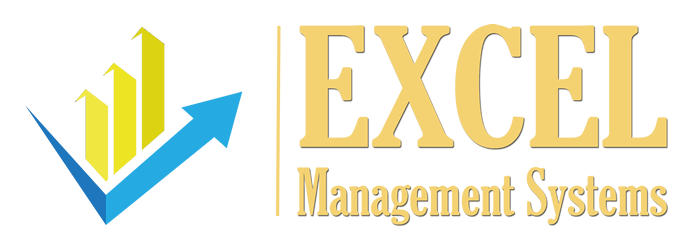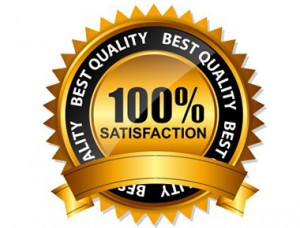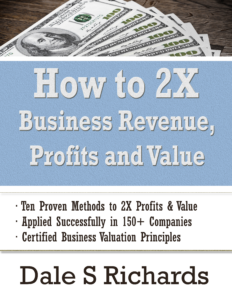Valuation & Negotiation Skills
The more valuation calculations with detailed assumptions, the easier it will be to predict company value and help with negotiations. Multiple & complex valuation models – timeliness, responsive, and reporting processes don’t have to be burdensome.
Business Valuation Principles made easy for any executive to understand with insight on How to Increase Your Business Value Financially, Operationally and Strategically. I understand business theory, and I hope to make it easier for you to understand as well. In the process, I try to point out common errors in the valuation process.
I believe KNOWLEDGE IS POWER. I like to detail at least nine different methods to value a business when speaking to businesses and CEO’s. The nine different valuation calculations use three established valuation methods:
- Asset Method
- Market Method
- Income Method
The assumptions from using my methods can reveal how the company may achieve a higher level of performance and value. In a negotiation, an owner can push a higher value by emphasizing the reasons and circumstances that would create that higher value. One value number probably does not tell you the real potential or value of the business. Two to five numbers give you a good range of values and provide solid data sets, to see where the value of your company may be.
It is recommended that a business valuation be done every two years. With my nine methods and calculations, it can be used as a metric for management performance. Ask yourself three basic questions:
- Are the net assets improving?
- Is the cash flow better?
- What impact does that have on the market value method?
If the net cash flow is increasing, the statistically projected method will show a rise. I discuss these nine valuation concepts in my book Business Valuation Principles by Dale S Richards.
Let’s look at some examples: when a certified valuation is needed
1. Merger or Acquisition: For a merger or acquisition transaction, it is critical that multiple method valuations be completed. KNOWLEDGE IS POWER. If just an Earnings Before Interest, Taxes, Depreciation and Amortization (EBITDA), the multiplier is used, what data do you have to increase your knowledge or negotiation power? None.
2. Financing or Investment: If you are seeking funds or investment partners, a certified valuation is essential to provide the insights these partners would need. Multiple business value calculations will be useful for the transaction.
3. Estate Taxes or Gift Values: The Internal Revenue Service (IRS) requires a value for any stock that is gifted to heirs. A valuation is also needed for assets and business value for estate taxes. A high-quality valuation firm can provide a comprehensive valuation and report that the IRS can easily follow. Excel Management’s team has provided IRS quality reports for 15+ years that have never been challenged by the IRS. They have accepted the findings because they are clearly explained.
www.successbiznow.com – Press “Valuation” Tab
4. Purchase Allocation or Fairness Opinion: If you have a transaction or acquisition a Board of Directors or the firms’ partners will often require a transaction fairness opinion. It is important that the two companies are valued on the same comprehensive basis and methods to give an “apples-to-apples” comparison. This will provide the decision makers with the proper documentation to make a fair opinion.
5. Stock Option Plans: Years ago the IRS would allow stock option value discounts for employees. This is no longer allowed. Stock options granted must have a current market value associated with the “option strike price” to meet IRS guidelines.
6. Life Insurance: Small businesses should have key person life insurance to reduce loss risk associated with key employees. A certified valuation is the best option to determine the life insurance and protection needs.
7. Buy/Sell Agreements: Partnerships or joint ownership arrangements usually do not last forever. It is important, up front, to establish a succession plan with specific certified valuation methods and plans to assess the company value when a partner change is needed.
8. Tax vs. Value Tool Box: In privately held companies there may be various expenses that provide a tax advantage but should be tracked and added back into the net cash flow for the valuation Income Method. If a transaction is considered, it makes the due diligence process go smoother if the toolbox items are tracked in the profit and loss statement or a spreadsheet.
Dale Richards taught Valuation & Negotiation skills in Vermont.
Jack Russell, Century 21 is in the process of negotiation and was very pleased and appreciative of Dale’s insights on Valuation Principles and how to use the many calculations that Excel Management provides to provide Knowledge is Power in any negotiation. Dale taught key business concepts on Business Valuation Principles – How to Increase Your Business Value, Financially, Operational and Strategically.
ABOUT DALE S. RICHARDS:
Dale S. Richards specializes in management, marketing, operation optimization & business valuation consulting and is a 30+ year turnaround expert. He has implemented success concepts into results in 150+ companies. Dale is a Certified Valuation Analyst (CVA) with NACVA, Eight-Year Vistage Chair & International Speaker.




